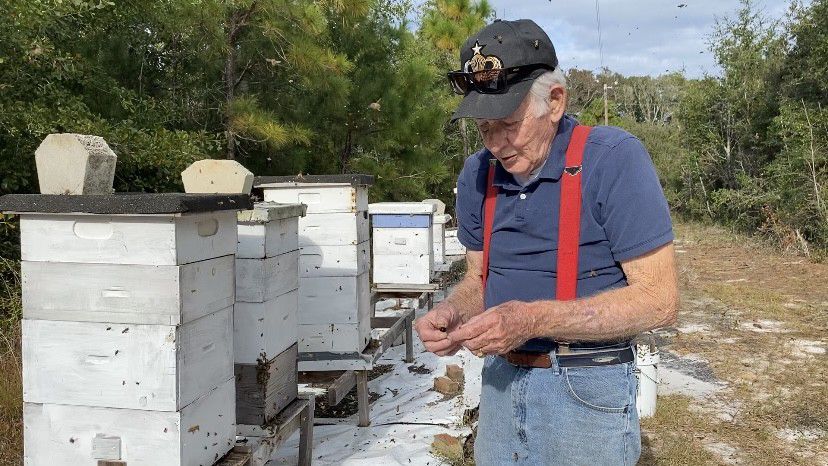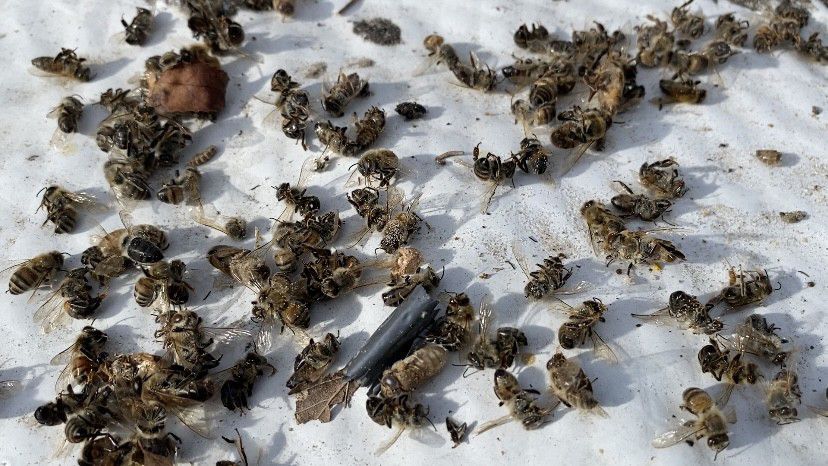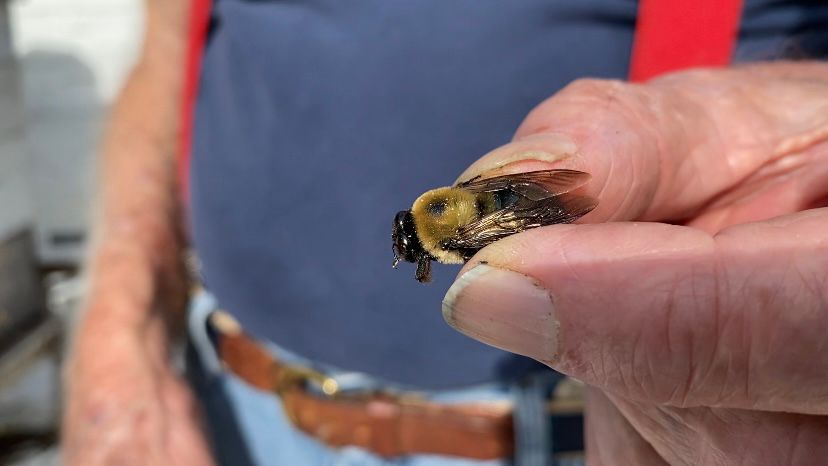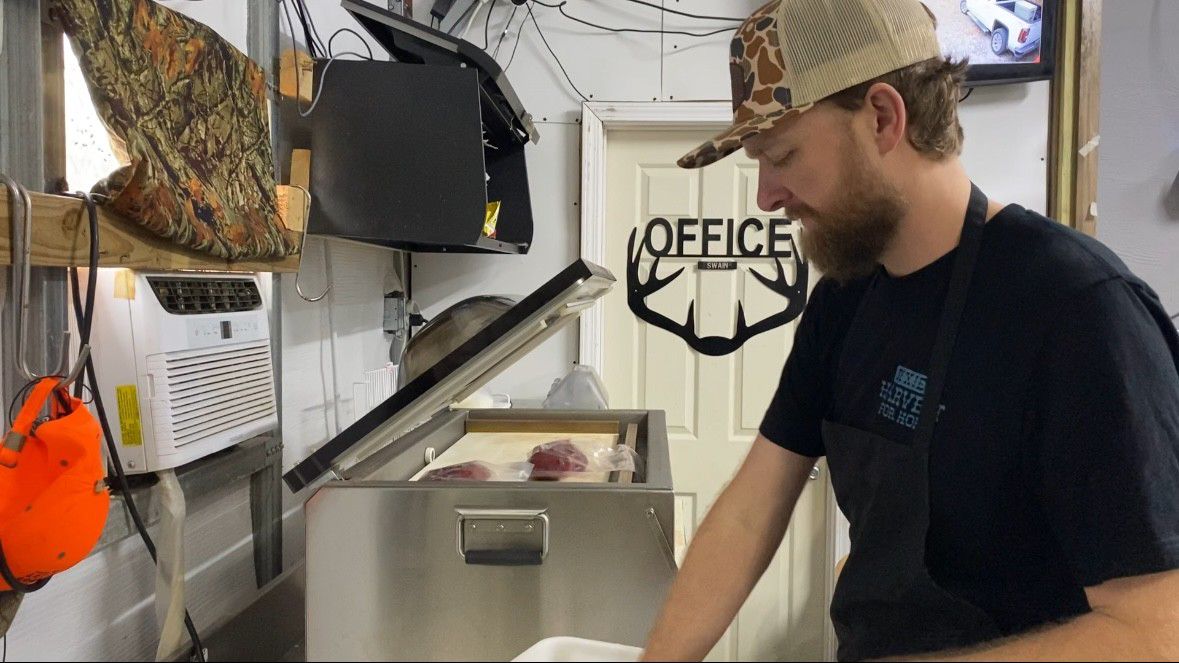BRUNSWICK, N.C. — The North Carolina Department of Agriculture is investigating a bee death event in Brunswick County that has many beekeepers worried about the future of their hives. Thousands of bees have been dying after the county’s post-disaster aerial spraying earlier this month.
Brunswick County Beekeeper Hubert Lowe has been taking care of bees for most of his life.

“I’ve been doing it since I was about knee high with my daddy,” Lowe said.
Now, decades later, he has 30 of his own hives, but he’s worried he could lose some of those since hundreds of his bees died just days after a county aerial pesticide spray.
“Oh, just disgusted,” said Lowe, when asked about how he feels about the spray. “All this extra work, and extra expense, and everything else.”
Brunswick County officials say this aerial spraying was necessary after Tropical Storm Debby and the unnamed storm that hit the southeastern part of the state left standing water throughout the county, which is a perfect breeding ground for mosquito larvae.

The county says they sprayed at dusk when hives would be less active and so the pesticides would dissipate by the time the bees began foraging. Lowe, however, says it didn’t dissipate quickly enough.
“The chemical was still on that and they brought it back to the hive and the next morning,” Lowe said, “we saw a few bees dead, and the following morning there was a lot more.”
Lowe isn’t the only one complaining. Several beekeepers in the area have lost bees after this spray as well.
“Some's got more dead than others,” Lowe said. “But it affected all of us.”

The North Carolina Department of Agriculture is currently investigating this bee death event and says that so far, eight beekeepers have reached out to report dead and dying bees after the county’s aerial spray event. That investigation is ongoing, and in the meantime, beekeepers like Lowe are working hard to make sure their hives survive the winter after losing so many of their precious bees.
The Department of Agriculture says, to be clear, they’re not investigating if the spraying was necessary, but if it was done correctly. The investigation could take three or more months, and when it is complete, the results will become public record.












